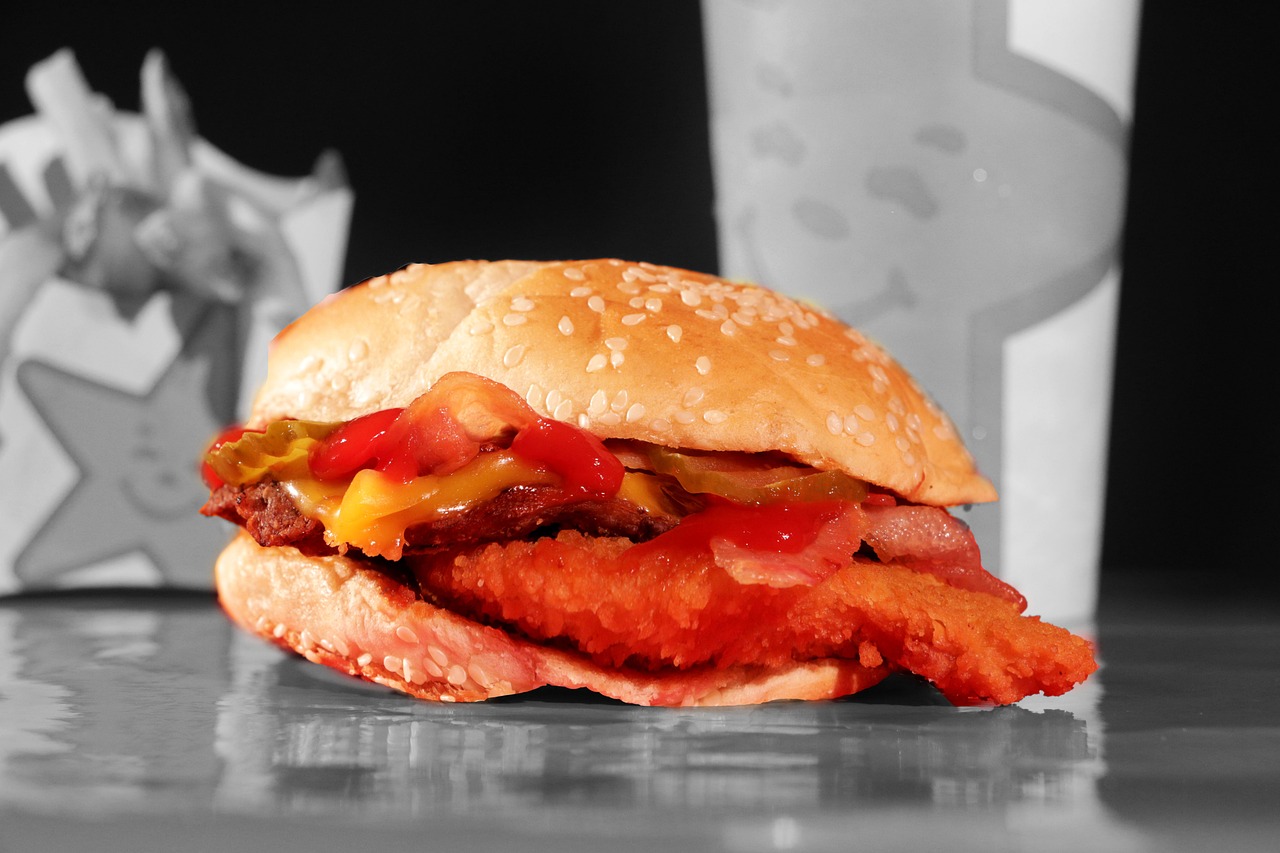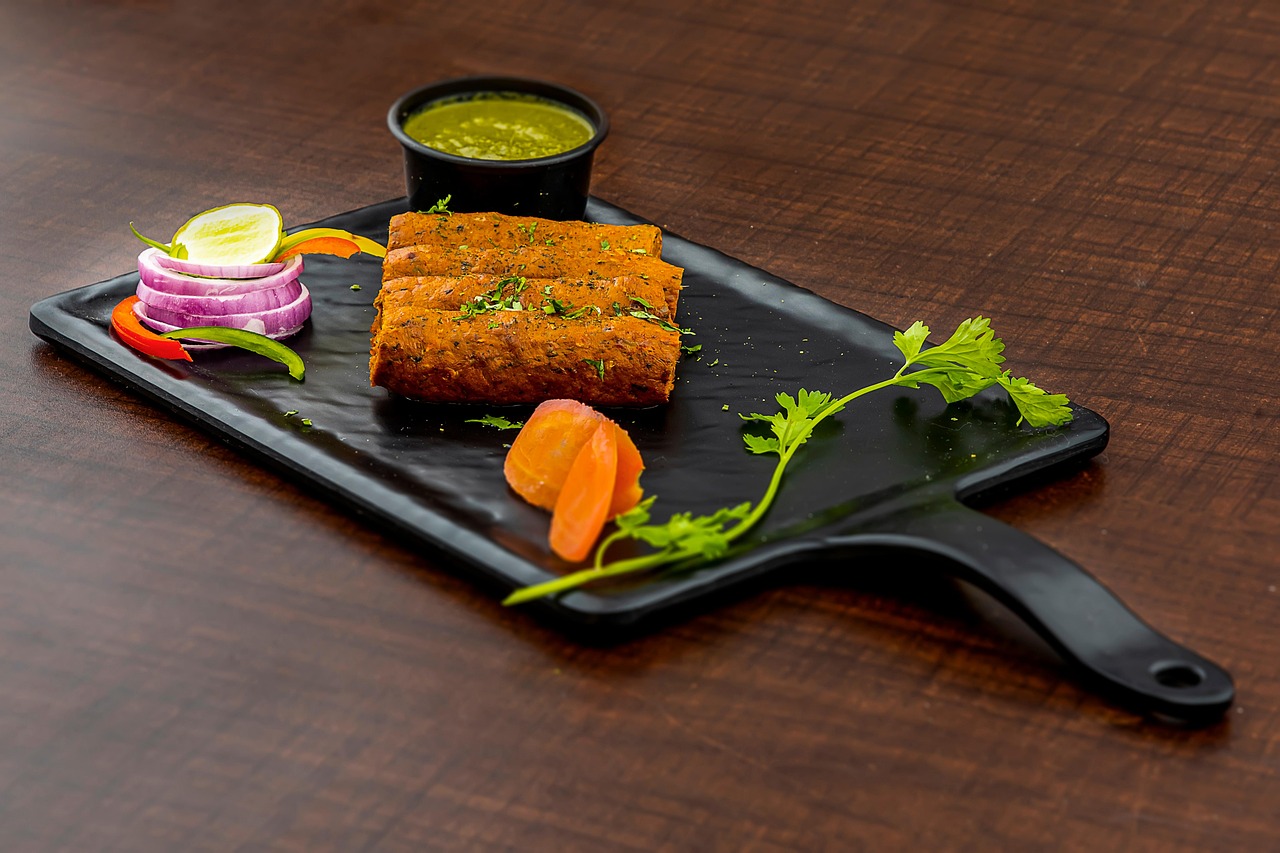This article explores the guidelines surrounding fasting for blood work, specifically addressing whether drinking water is permissible. We will provide insights and expert opinions to clarify common misconceptions.
Understanding Fasting for Blood Tests
Fasting is a critical aspect of many blood tests, designed to ensure that results are accurate and reliable. During fasting, patients are typically required to abstain from food and sometimes beverages for a specified period. This practice helps eliminate variables that might influence the outcomes of tests, such as glucose and cholesterol levels.
Why Is Fasting Important for Blood Work?
Fasting is essential because it allows for a baseline measurement of various substances in the blood without interference from recent food intake. For example, consuming food can lead to elevated glucose levels, which may misrepresent a person’s metabolic state. Understanding the implications of fasting can help patients better prepare for their blood tests.
- Types of Blood Tests Requiring Fasting:
- Not all blood tests necessitate fasting, but specific tests do. Common tests that require fasting include:
- Glucose Testing: Crucial for diagnosing diabetes, fasting ensures that blood sugar levels are measured without influence from recent meals.
- Lipid Panel: This test measures cholesterol and triglyceride levels, which can be significantly affected by food intake.
Duration of Fasting
The duration of fasting can vary depending on the type of blood test. Generally, a fasting period of 8 to 12 hours is recommended for most tests. It is vital to follow specific instructions provided by healthcare professionals to ensure accurate results.
Can You Drink Water While Fasting?
A common question during fasting for blood work is whether water consumption is allowed. In most cases, drinking water is not only permissible but encouraged. Staying hydrated can facilitate blood draws and improve overall comfort during the procedure.
Benefits of Drinking Water Before Blood Tests
Drinking water prior to blood tests can:
- Help maintain hydration levels, making veins easier to locate.
- Prevent dizziness or fainting during blood draws.
- Ensure that blood volume is adequate for testing.
Potential Risks of Drinking Water
While water is generally safe, it’s essential to avoid adding any substances, such as flavoring or sweeteners, which could affect test results. Patients should also consult their healthcare provider if they are unsure about their specific fasting requirements.
Other Considerations During Fasting
Fasting for blood work involves more than just abstaining from food and drink. Here are additional factors to consider:
- Medications and Supplements: Some medications can alter blood test results. Patients should discuss their medications with their healthcare provider before fasting.
- What to Avoid While Fasting: It’s crucial to avoid consuming any food, beverages (other than water), and certain activities that may influence test accuracy, such as vigorous exercise.
Consulting Your Healthcare Provider
It’s essential to communicate with your healthcare provider regarding fasting guidelines. Individual health conditions may necessitate tailored advice, ensuring that patients are well-prepared for their blood tests. Always follow the specific instructions provided by healthcare professionals to achieve the most accurate results.

Understanding Fasting for Blood Tests
Fasting for blood tests is a common requirement that often leaves many individuals confused about its significance. This practice is not merely a formality; it plays a crucial role in ensuring the accuracy and reliability of various blood test results. Understanding the reasons behind fasting can help patients prepare adequately and alleviate any concerns they may have.
When you consume food or beverages before a blood test, the components of what you ingest can alter the composition of your blood. For instance, glucose levels can spike after eating, potentially leading to misleading results in tests meant to measure blood sugar levels. Likewise, lipid levels, which include cholesterol and triglycerides, can be significantly impacted by recent meals. Therefore, fasting helps to eliminate these variables, providing a clearer picture of your health.
Fasting is particularly important for tests such as:
- Glucose Testing: This test measures your blood sugar levels and is essential for diagnosing conditions like diabetes. Fasting ensures that the results reflect your baseline sugar levels without the interference of recent food intake.
- Lipid Panel: This test assesses cholesterol levels in your blood. Consuming food can lead to temporary spikes in triglycerides, which can skew the results and lead to incorrect assessments of cardiovascular health.
The duration of fasting can vary depending on the type of test being conducted. Generally, a fasting period of 8 to 12 hours is recommended for most blood tests. However, it’s crucial to follow the specific guidelines provided by your healthcare provider, as some tests may have different requirements.
Another common query is whether you can drink water while fasting. The answer is typically yes. Staying hydrated is beneficial and can facilitate easier blood draws. Drinking water does not interfere with most blood tests and can help maintain your overall health during the fasting period.
However, it’s essential to be aware of potential risks. For instance, excessive water consumption could dilute certain blood components, affecting test accuracy. Therefore, moderation is key. Additionally, some individuals may need to avoid water if instructed by their healthcare provider, particularly if specific tests are being conducted.
While fasting primarily involves abstaining from food and drink, there are other considerations to keep in mind. Certain medications and supplements can also influence test results. It’s advisable to consult with your healthcare provider about any medications you are taking and whether they should be continued during the fasting period.
Moreover, understanding what to avoid during fasting is crucial. Activities such as vigorous exercise, smoking, or consuming alcohol can also impact blood test results. To ensure the most accurate outcomes, follow your healthcare provider’s instructions closely.
In summary, fasting for blood tests is a vital process that helps to ensure accurate and reliable results. By understanding its importance and adhering to the guidelines provided by healthcare professionals, patients can contribute to a more effective diagnosis and treatment plan. Always consult with your healthcare provider for personalized advice tailored to your specific health needs.

Why Is Fasting Important for Blood Work?
Fasting is a crucial aspect of preparing for various blood tests, as it plays a significant role in ensuring that the results are accurate and reliable. When individuals consume food or beverages before their tests, it can introduce variables that may skew the results. This article delves into the importance of fasting for blood work, outlining how different substances can influence test outcomes.
One of the primary reasons for fasting is to obtain a baseline measurement of certain substances in the blood. For example, when testing for glucose levels, recent food intake can cause fluctuations that may lead to misleading conclusions about a person’s health. Similarly, lipid panels, which measure cholesterol and triglycerides, can be affected by dietary choices made just hours before the test.
Moreover, fasting minimizes the impact of other variables, such as hydration status and metabolic changes, which can occur after eating. For tests like the comprehensive metabolic panel, where electrolytes and kidney function markers are assessed, the presence of food can alter the results, making it challenging for healthcare providers to make accurate assessments.
Not all blood tests require fasting, but understanding which ones do is essential for patients. For instance, tests that evaluate liver function or hormone levels may not necessitate fasting. However, tests related to diabetes management or cardiovascular health often do. This distinction is vital for individuals who want to ensure their test results reflect their true health status.
In addition to the type of test, the duration of fasting is also important. Typically, a fasting period of 8 to 12 hours is recommended, but this can vary depending on the specific test being conducted. Patients should always follow their healthcare provider’s instructions regarding fasting duration to avoid any potential inaccuracies in their results.
Furthermore, it is crucial to consider the impact of medications and supplements during fasting. Some medications can interfere with blood test results, and patients are advised to consult with their healthcare providers about whether to take them during the fasting period. This consideration ensures that the results are not compromised by external factors.
In conclusion, fasting is an essential practice for certain blood tests, as it helps eliminate variables that could affect the accuracy of the results. By understanding the reasons behind fasting and adhering to guidelines provided by healthcare professionals, patients can ensure that their blood tests provide a true reflection of their health status. This practice not only aids in accurate diagnosis but also helps in monitoring ongoing health conditions effectively.
Types of Blood Tests Requiring Fasting
When it comes to blood tests, understanding which ones require fasting is crucial for obtaining accurate results. While many people are aware that fasting is a common requirement, the specifics can often be confusing. This section aims to clarify the types of blood tests that typically necessitate fasting and the reasons behind this important practice.
Fasting generally means abstaining from all food and drink, except for water, for a specified period before the test. The primary goal of fasting is to eliminate any variables that could skew the results. Here are some of the key blood tests that usually require fasting:
- Glucose Testing: This test measures the level of glucose in the blood and is critical for diagnosing diabetes. Fasting for at least 8 hours prior to the test helps ensure that the blood sugar levels are not influenced by recent food intake, providing a clearer picture of the body’s glucose management.
- Lipid Panel: This test assesses cholesterol levels, including LDL, HDL, and triglycerides. Food can significantly impact these levels, so fasting for 9-12 hours is typically recommended to achieve reliable results. Elevated triglycerides after eating can lead to misleading conclusions about a person’s cardiovascular health.
- Basic Metabolic Panel (BMP): This panel evaluates various substances in the blood, including glucose, calcium, and electrolytes. Fasting helps to stabilize these levels, ensuring that the results reflect the individual’s normal state without the influence of recent meals.
- Comprehensive Metabolic Panel (CMP): Similar to the BMP, the CMP provides a broader assessment of metabolic health. Fasting is essential here as well, as it helps to avoid fluctuations in glucose and electrolyte levels caused by food consumption.
- Iron Studies: Tests that measure iron levels, including serum iron and ferritin, may also require fasting. Food can affect iron absorption and levels, making fasting necessary for accurate interpretation of the results.
In summary, fasting is a fundamental aspect of certain blood tests to ensure that the results are not influenced by recent dietary intake. By adhering to fasting guidelines, patients can help their healthcare providers make more informed decisions based on their test results. Always consult with your healthcare provider for specific fasting requirements related to your blood tests, as individual needs may vary.
Glucose Testing
is a critical component in diagnosing and managing diabetes. Fasting plays a significant role in ensuring accurate blood sugar measurements, which can profoundly impact treatment decisions. This section will delve into the importance of fasting prior to glucose testing, the physiological effects it has on blood sugar levels, and the implications for diabetes diagnosis.
When a person fasts, typically for at least 8 to 12 hours, their body enters a state where it relies on stored glucose for energy. This process is crucial for obtaining a baseline measurement of blood sugar levels. Without fasting, recent food intake can lead to spikes in blood glucose levels, which may result in misleading test results. Such inaccuracies can complicate the diagnosis of diabetes or prediabetes, potentially leading to inappropriate treatment plans.
During fasting, the liver plays a vital role by releasing glucose into the bloodstream, maintaining energy levels while not consuming food. This release helps to stabilize blood sugar levels, allowing healthcare providers to assess how well a person’s body manages glucose without the influence of recent meals.
Moreover, fasting before a glucose test can help identify insulin resistance, a condition where the body does not respond effectively to insulin, leading to elevated blood sugar levels. This condition is often a precursor to type 2 diabetes. By comparing fasting glucose levels to postprandial (after eating) levels, healthcare professionals can better understand a patient’s metabolic health.
Additionally, the implications of fasting for glucose testing extend beyond just diagnosis. For individuals already diagnosed with diabetes, understanding how fasting affects their blood sugar can inform daily management strategies. It can help them recognize how their body responds to changes in diet and activity levels, enabling more effective self-monitoring and insulin management.
In summary, fasting is not merely a procedural requirement for glucose testing; it is a fundamental practice that shapes the understanding of an individual’s metabolic state. By ensuring accurate and reliable blood sugar readings, fasting can significantly influence diabetes diagnosis and management, ultimately leading to better health outcomes.
As a best practice, individuals preparing for a glucose test should adhere to their healthcare provider’s instructions regarding fasting. This adherence ensures the most accurate assessment of their blood sugar levels and facilitates timely and appropriate medical interventions when necessary.
Lipid Panel
A is a crucial blood test that measures the levels of various types of cholesterol and triglycerides in your bloodstream. This test provides essential information regarding your heart health and can help identify your risk for cardiovascular diseases. However, the accuracy of the results can be significantly affected by your recent food intake, making fasting before the test particularly important.
When you eat, your body processes the food and releases lipids into your bloodstream. This can lead to temporary spikes in cholesterol levels, which may misrepresent your true lipid profile. Therefore, fasting before a lipid panel is essential to obtain a clear and accurate picture of your cholesterol levels.
Typically, healthcare professionals recommend fasting for at least 9 to 12 hours before undergoing a lipid panel. This means avoiding all food and beverages except for water during this period. By fasting, you minimize the influence of recent meals on your lipid levels, allowing for a more reliable assessment of your heart health.
Fasting helps eliminate variables that can skew the results. For instance, consuming high-fat meals can cause a temporary increase in triglycerides, which might lead to an incorrect diagnosis or unnecessary anxiety regarding your heart health. It is essential to follow your healthcare provider’s instructions regarding fasting to ensure the most accurate results.
It’s also important to note that not all lipid panels require fasting. Some newer testing methods can provide accurate results without the need for fasting. However, traditional lipid panels still typically require it, so it’s best to consult with your healthcare provider regarding your specific situation.
In addition to fasting, staying hydrated is also important. Drinking water before your test can help make the blood draw easier and more efficient. It can also prevent dehydration, which can complicate the blood draw process. However, it is crucial to avoid any beverages other than water, as they can interfere with the test results.
In summary, fasting is a vital step in preparing for a lipid panel. It ensures that the results reflect your baseline cholesterol levels without the influence of recent food intake. Always follow your healthcare provider’s recommendations regarding fasting and hydration to ensure the most accurate assessment of your heart health.
Duration of Fasting
is a critical aspect of preparing for blood tests, as it directly impacts the accuracy of the results. Understanding how long one should fast is essential to ensure that the tests yield reliable information. This section will provide comprehensive guidelines on the recommended fasting duration for various blood tests, helping patients navigate their preparation effectively.
Fasting typically involves refraining from all food and drink, except for water, for a specified period before a blood test. The duration can vary significantly depending on the type of test being conducted. Below are some general recommendations:
| Type of Blood Test | Recommended Fasting Duration |
|---|---|
| Glucose Testing | 8-12 hours |
| Lipid Panel | 9-12 hours |
| Basic Metabolic Panel | 8-12 hours |
| Comprehensive Metabolic Panel | 8-12 hours |
| Thyroid Function Tests | No fasting required |
For glucose testing, fasting for at least 8 hours is crucial to accurately measure blood sugar levels. This is particularly important for diagnosing conditions such as diabetes, where even slight variations can lead to misinterpretation of results.
Similarly, a lipid panel requires fasting for 9 to 12 hours. This test measures cholesterol levels and triglycerides, which can be significantly affected by recent food intake. Consuming food before the test may lead to elevated triglyceride levels, skewing the results and potentially leading to unnecessary interventions.
For other tests, such as the basic metabolic panel and comprehensive metabolic panel, an overnight fast of 8 to 12 hours is also recommended. These tests evaluate various substances in the blood, and fasting helps eliminate variables that could affect the outcomes.
However, it is important to note that not all blood tests require fasting. For example, thyroid function tests typically do not require any fasting, allowing patients to proceed without the added stress of dietary restrictions.
In addition to the duration, it is essential to consider the timing of the test. Scheduling the test early in the morning can often make fasting more manageable, as patients can sleep through a significant portion of the fasting period.
In conclusion, understanding the is vital for anyone preparing for blood tests. Adhering to the recommended fasting times can significantly enhance the accuracy of test results, leading to better healthcare decisions. Always consult with a healthcare provider for personalized fasting guidelines based on individual health needs and specific tests.

Can You Drink Water While Fasting?
When preparing for blood work, a frequent concern is whether it is permissible to drink water during the fasting period. This question is particularly relevant, as many individuals are eager to ensure that their test results are accurate while also maintaining their hydration levels.
Understanding the Role of Water in Fasting
Water is a crucial component of our daily intake, and its role during fasting for blood tests is often misunderstood. The primary purpose of fasting is to eliminate the intake of calories and substances that could interfere with test results. However, water is generally considered acceptable and can even be beneficial.
Benefits of Drinking Water Before Blood Tests
- Hydration: Staying hydrated is important for overall health and can make blood draws easier. Proper hydration can help improve blood flow, making it easier for healthcare professionals to obtain a sample.
- Reduced Discomfort: Being well-hydrated can minimize discomfort during the blood draw, as it may help veins to be more prominent.
- Accurate Results: Drinking water does not typically affect most blood tests, allowing for accurate measurement of various biomarkers.
Potential Risks of Drinking Water
While water is generally safe to consume during fasting, there are a few considerations to keep in mind:
- Excessive Intake: Overhydration can lead to dilution of blood samples, potentially skewing results, especially in tests that require precise measurements.
- Medical Conditions: Individuals with certain medical conditions, such as kidney disease, should consult their healthcare provider regarding water intake during fasting.
Expert Opinions on Water Consumption
Healthcare professionals often recommend drinking water before blood tests. According to many experts, staying hydrated can enhance the overall testing experience and contribute to more reliable results. However, it is essential to follow specific guidelines provided by your healthcare provider.
Conclusion
In summary, drinking water while fasting for blood work is generally allowed and can offer several benefits, including improved hydration and easier blood draws. However, it is crucial to be mindful of the quantity consumed and any underlying health conditions. Always consult with your healthcare provider for personalized advice regarding fasting and hydration before your blood tests.
Benefits of Drinking Water Before Blood Tests
Staying hydrated is crucial for overall health, and it can significantly impact the outcomes of blood tests. In this section, we will explore the , emphasizing how proper hydration can facilitate the testing process and improve the accuracy of results.
One of the primary advantages of drinking water prior to a blood test is that it helps to dilute the blood. When you are well-hydrated, your blood volume increases, which can make it easier for healthcare professionals to draw blood. This is especially important for individuals who may have difficult veins or those who experience anxiety during blood draws. A well-hydrated state can also minimize discomfort during the procedure, making the experience less stressful.
Moreover, adequate hydration can enhance the accuracy of certain blood tests. For example, tests that measure kidney function or electrolyte levels can be affected by hydration status. When you drink water, it helps maintain the balance of electrolytes in your bloodstream, which is essential for accurate readings. Dehydration can lead to artificially elevated levels of certain substances, potentially leading to misdiagnosis or inappropriate treatment plans.
In addition to improving blood draw ease and test accuracy, drinking water before a blood test can also help prevent dehydration-related complications that might skew results. For instance, dehydration can cause blood to become more viscous, which may affect the results of tests like the complete blood count (CBC). Proper hydration ensures that blood cells are in a more normal state, leading to more reliable results.
It’s also worth noting that drinking water does not interfere with most fasting blood tests. In fact, many healthcare providers encourage patients to drink water to stay hydrated while fasting. However, it’s essential to clarify this with your healthcare provider, as specific tests may have unique requirements.
In summary, the benefits of drinking water before blood tests are manifold. From making the blood draw easier to ensuring accurate test results, hydration plays a vital role in the testing process. Remember to consult with your healthcare provider regarding your specific situation and any recommendations they may have about water consumption before your scheduled tests.
Potential Risks of Drinking Water
When considering fasting for blood work, many individuals wonder about the implications of drinking water during this period. While hydration is generally beneficial, there are certain potential risks associated with consuming water while fasting that should be understood. This section will delve into these risks to provide clear guidance.
Firstly, it’s important to recognize that while water itself is calorie-free, the timing and quantity of water intake can influence certain blood test results. For instance, excessive water consumption may dilute blood samples, leading to inaccurate test outcomes. This dilution can particularly affect tests that measure concentrations of substances like electrolytes, proteins, and hormones, potentially masking underlying health issues.
Another consideration is the source of the water. Tap water, for instance, can contain various minerals and contaminants that might interfere with specific blood tests. If a person is undergoing tests that measure mineral levels, consuming tap water could skew the results. Therefore, it’s advisable to use filtered or bottled water if you are uncertain about your tap water quality.
Additionally, the temperature of the water consumed can play a role. Cold water can cause vasoconstriction, which may affect blood flow and, consequently, the ease of drawing blood. This can lead to difficulties during the blood draw process and potentially increase discomfort for the patient.
Moreover, certain individuals may experience gastrointestinal discomfort or bloating from drinking water on an empty stomach, especially if they are not accustomed to it. This discomfort can distract from the fasting process and may lead to anxiety or stress, which can also impact test results.
It’s also crucial to consider the timing of water consumption. Drinking water too close to the time of the blood draw could lead to variability in test results. For tests requiring fasting, it is often recommended to limit water intake to a few hours before the procedure. This helps ensure that the body is in a stable state for the most accurate assessment.
In summary, while staying hydrated is important, there are risks associated with drinking water during fasting for blood work. To mitigate these risks, individuals should:
- Limit water intake to prevent dilution of blood samples.
- Choose high-quality water sources to avoid contaminants.
- Be mindful of the temperature of the water.
- Consider the timing of water consumption relative to the blood draw.
Ultimately, it is recommended to consult with a healthcare provider for personalized advice regarding water consumption during fasting for blood tests. By understanding these potential risks, individuals can make informed decisions that support accurate test results and contribute to their overall health.

Other Considerations During Fasting
Fasting for blood work is a critical process that requires careful attention to various factors beyond simply abstaining from food and drink. Understanding these additional considerations can significantly impact the accuracy of your test results and your overall health management.
One of the most important aspects to consider during the fasting period is the effect of medications and supplements on blood test outcomes. Some medications can alter blood sugar levels, lipid profiles, or other critical markers. It is essential to consult with your healthcare provider regarding:
- Whether to continue taking your medications during the fasting period.
- The timing of your doses in relation to the blood test.
- Any supplements that may interfere with test results, such as vitamin D or fish oil.
For example, blood thinners like warfarin may need to be paused before certain tests, while others may require you to maintain your regular medication schedule. Always follow your doctor’s advice to ensure accurate results.
While fasting, it’s crucial to be aware of what you should avoid to ensure the integrity of your blood test results. Here are some common pitfalls:
- Smoking: Nicotine can affect your blood pressure and heart rate, potentially skewing results.
- Alcohol: It can significantly alter liver enzymes and glucose levels, so abstaining is vital.
- Excessive exercise: Intense physical activity can affect your metabolism and hydration levels, leading to inaccurate test results.
- Stress: High stress can influence hormone levels and blood pressure, so try to remain calm and relaxed.
By avoiding these factors, you can help ensure that your blood tests reflect your true health status.
While drinking water is often encouraged during fasting, it’s essential to consider how much you consume. Staying hydrated can facilitate blood draws and improve overall test accuracy. However, excessive water intake right before a test can dilute certain markers, leading to misleading results. Aim for moderate hydration, and consult your healthcare provider for personalized advice.
The duration of your fasting period can also play a crucial role in the accuracy of your tests. Most blood tests require fasting for 8 to 12 hours, but some may have specific instructions. For instance, glucose tests may require a longer fasting period for more accurate readings. Always adhere to the guidelines provided by your healthcare professional.
In summary, fasting for blood work is a multifaceted process that involves more than just not eating or drinking. By considering factors such as medications, what to avoid, hydration, and timing, you can help ensure that your blood test results are as accurate as possible. Always consult with your healthcare provider for tailored advice that fits your individual health needs.
Medications and Supplements
When preparing for blood tests, it is crucial to consider the impact of medications and supplements on test results. Many individuals may not realize that certain substances can alter the accuracy of their blood work, leading to potentially misleading outcomes. This section will provide comprehensive guidelines on how to manage these substances during the fasting period.
Several medications, including prescription drugs and over-the-counter options, can interfere with blood test results. For example, medications that affect blood sugar levels, such as insulin or oral hypoglycemics, can skew glucose test outcomes. Similarly, blood thinners like warfarin can impact coagulation tests. Therefore, it is essential to inform your healthcare provider about all medications you are taking.
Dietary supplements, including vitamins and herbal products, can also influence blood tests. For instance, vitamin B12 and iron supplements can alter results for certain tests. Herbal supplements like St. John’s Wort may affect liver enzymes, leading to inaccurate liver function test results. It is advisable to refrain from taking these supplements during the fasting period unless directed otherwise by a healthcare professional.
- Consult Your Doctor: Always discuss your current medications and supplements with your healthcare provider before fasting. They can provide tailored advice based on your specific health needs.
- Follow Instructions: If your doctor advises you to continue taking certain medications, adhere strictly to their instructions regarding dosage and timing.
- Timing Matters: In some cases, you may be instructed to take medications at a specific time before your blood test. Understanding this timing can help minimize any potential interference.
- Document Everything: Keep a detailed list of all medications and supplements you are taking, including dosages and timing. This information can be valuable for your healthcare provider.
| Medication/Supplement | Potential Impact on Blood Tests |
|---|---|
| Insulin | Affects glucose levels, leading to inaccurate diabetes testing. |
| Warfarin | Interferes with coagulation tests, affecting INR results. |
| Vitamin B12 | Can alter results for certain anemia tests. |
| St. John’s Wort | Affects liver enzyme levels, skewing liver function tests. |
In summary, managing medications and supplements during the fasting period is vital for obtaining accurate blood test results. Always consult with your healthcare provider for personalized advice. By understanding the effects of these substances and following proper guidelines, you can ensure your blood work reflects your true health status.
What to Avoid While Fasting
When preparing for blood tests, understanding what to avoid is essential for ensuring accurate results. Fasting is a critical component of many blood tests, and certain items and activities can lead to misleading outcomes. In this section, we will outline the key elements to steer clear of during your fasting period.
- Food and Beverages: The most obvious items to avoid are any types of food and beverages, except for water. Consuming even small amounts of food can interfere with the test results, particularly for glucose and lipid panels. It is vital to refrain from eating anything to maintain the integrity of the test.
- Alcohol: Alcohol consumption should be strictly avoided before blood tests. It can alter liver function tests and affect blood sugar levels, leading to inaccurate readings. Abstaining from alcohol for at least 24 hours prior to testing is recommended.
- Caffeinated Drinks: Coffee, tea, and other caffeinated beverages can influence certain blood tests, including those measuring cholesterol and glucose levels. It’s best to avoid caffeine for at least 12 hours before your test.
- Smoking: Smoking can affect blood test results, particularly those related to cardiovascular health. It is advisable to avoid smoking for at least several hours before your blood draw.
- Physical Activity: Strenuous exercise can impact various test results, particularly those related to metabolic and cardiovascular health. It’s important to limit physical activity and avoid heavy workouts for at least 24 hours prior to testing.
- Medications and Supplements: Some medications and dietary supplements can interfere with blood test outcomes. Always consult with your healthcare provider regarding which medications to avoid during the fasting period. They may recommend pausing certain medications or adjusting dosages.
- Stress: High-stress levels can affect hormone levels and other parameters measured in blood tests. Aim to stay calm and relaxed leading up to your appointment to avoid skewed results.
- Dental Procedures: If you have undergone dental work or procedures, such as teeth cleaning, it is advisable to wait at least 24 hours before having blood drawn, as these can influence certain tests.
By adhering to these guidelines and avoiding the items listed above, you can help ensure that your blood test results are as accurate as possible. Always remember to consult with your healthcare provider for personalized advice tailored to your specific health needs.

Consulting Your Healthcare Provider
When it comes to fasting for blood work, is a critical step that should not be overlooked. Each individual’s health condition is unique, and therefore, the fasting guidelines may vary significantly from person to person. This section will delve into the reasons why professional advice is essential and how personalized recommendations can enhance your health outcomes.
First and foremost, it is important to understand that fasting is not a one-size-fits-all approach. Different medical conditions, medications, and personal health histories can influence how fasting affects your body. For instance, individuals with diabetes may require specific fasting protocols to avoid dangerous fluctuations in blood sugar levels. Consulting with your healthcare provider allows you to receive tailored advice that considers these unique factors.
- Understanding Your Health Condition: Your healthcare provider can assess your specific health needs and determine the appropriate fasting duration and guidelines. This is particularly important for those with chronic illnesses or those taking medications that may interfere with test results.
- Minimizing Risks: Fasting can pose risks for certain individuals, such as those who are pregnant or have eating disorders. A healthcare professional can help you identify any potential risks and suggest safer alternatives.
- Clarifying Misconceptions: There are many myths surrounding fasting for blood work. Your provider can clarify these misconceptions and provide evidence-based recommendations to ensure you are well-informed.
- Interpreting Test Results: After your blood work is completed, your healthcare provider can help interpret the results in the context of your overall health, making it easier to understand any necessary next steps.
Moreover, the importance of effective communication with your healthcare provider cannot be overstated. Don’t hesitate to ask questions about the fasting process, such as:
- What specific tests require fasting?
- How long should I fast before my blood work?
- Are there any medications I should avoid during this period?
- Is it safe for me to fast given my current health status?
By actively engaging in this dialogue, you empower yourself with the knowledge needed to navigate the fasting process confidently. Remember, your healthcare provider is there to support you and provide guidance tailored to your needs.
In conclusion, the significance of consulting your healthcare provider regarding fasting guidelines cannot be overstated. With their expertise, you can receive personalized recommendations that take into account your unique health situation. This proactive approach not only enhances the accuracy of your test results but also contributes to your overall well-being.
Frequently Asked Questions
- Can I drink water while fasting for blood work?
Yes, drinking water is generally allowed and even encouraged while fasting for blood tests. Staying hydrated can help make blood draws easier and ensure accurate results.
- What happens if I drink something other than water?
Consuming anything other than water, especially beverages with calories, can interfere with your test results. It’s best to stick to plain water to avoid any complications.
- How long should I fast before my blood test?
The fasting duration can vary depending on the type of test. Typically, fasting for 8-12 hours is recommended for tests like glucose and lipid panels. Always check with your healthcare provider for specific instructions.
- Are there any medications I should avoid while fasting?
Some medications can affect test results, so it’s important to consult your healthcare provider about what to take or avoid during the fasting period.
- What should I avoid eating or drinking before my blood test?
Aside from food, you should avoid alcohol, sugary drinks, and caffeine. These can skew your results and lead to inaccurate readings.












